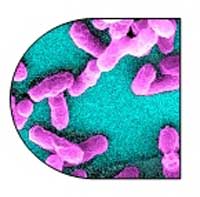- Home
- Products and services
- Phengenix
- identification
Identification

Phengenix provides analysis and interpretation of complex scientific data sets generated through genomic analyses using a wide range of bioinformatic techniques. Utilising expertise within APHA, detailed data analysis can be performed using the following core techniques:
- Functional annotation of genomes using a range of five standard pipelines including gene predictions.
- Analysis for SNiPs and other sequence based typing approaches.
- Multiple Sequence Alignments to the whole genome level.
- Analysis and presentation of complex datasets using bespoke algorithms.
- Design of primers and oligomers for PCR and array production.
The production of genome sequences and other large datasets is essential to enable the identification of key attributes. Raw genome sequence data requires assembly and functional annotation to understand the complement of genes. Comparison of genomes may be required for the detection of either additional genes or changes in specific genes using alignment processes to understand biological activity or identify target strains. This information may be of further value in designing tests for specific genes or their variants to enable rapid detection of bacterial strains.
Further studies
The APHA is expert in ex vivo (tissue culture, 3D cells, organ culture and IVOC) and in vivo methods. Thus, organisms defined using the methods described above can then be tested in many appropriate models especially those relevant to the food producing and pharmaceutical industries.
To discuss your requirements please contact our Customer Services Team
Tel: +44 (0)3000 600001
Email: aphascientific@apha.gov.uk
Page last modified: 28 November, 2018
